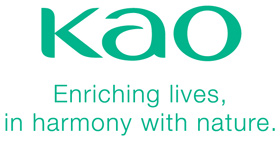Chris Sayner, CRODA
Ahead of this year’s European Roundtable conference we will be interviewing speakers and delegates on key issues in the palm oil sector and how we can make change possible to deliver on commitments to 100% CSPO take up in Europe by 2020.
Chris Sayner is Vice President of Customer Alliances and Corporate Sustainability at CRODA, with over 30 years experience working in the Personal Care industry. Chris played a key role in designing the architecture around Croda’s Sustainability Reporting which has received increasing external recognition. Croda has twice been included in the Global 100 Most Sustainable Corporations in the World, 2013 and 2014 and on the CDP “Climate Disclosure Leadership Index” and 2013 for leading on climate change transparency.

- What is your role in the movement towards sustainable palm oil?
CRODA is based in the home and personal care industry supplying ingredients and raw materials for home and household products.
The home and personal care industry has very strong links to palm through its use of palm oil kernel derivatives and, as an industry, the combined consumption is around 5% of the world’s palm output, with over 1,000 ingredients used in home and personal care derived from palm. These derivatives are the building blocks for home and personal care as they are the structural ingredients that hold the formulations together.
Palm is finding its way into 70% of the world’s personal care products that are produced – these figures demonstrate the vested interest the home and personal care industry has in palm and in ingredient supplier organisations.
As an industry, we have made great strides, and I am proud of the fact that CRODA have pushed things along and led in many ways. The outcome is the sustained effort in supporting sustainable palm, and the availability of raw material.
As consumers, we increasingly want to know what the sustainability credentials are of the raw materials that go into our favourite big brands. So, although home and personal care is not the driver behind palm oil demand as the industry only consumes about 5%, there is a lot of value added throughout the whole supply chain which also adds to the interest in supporting sustainable palm.
- What do you see as the role of RSPO? Is the RSPO living up to expectations?
The RSPO has not been without criticism over the years but the RSPO has given the industry the tools to better support sustainable palm, particularly the physical supply chains.
Back in 2011, people were talking about a goal to commit to 100% sustainable palm oil by 2015. There was an aspiration to meet the 2015 date, but with the limited tools that we had at our disposal then, we as an industry didn’t succeed. Compare this to where we are now in 2017, where we have a higher degree of confidence, the necessary knowledge and tools to achieve a new goal of 2020. The fact that there’s been so much good discussion about dismantling the complexity in supply chains and the great awareness that the RSPO has created has also really helped.
- What progress, if any, has been made since the last RSPO European Roundtable by members and the RSPO Secretariat?
There has been huge momentum in the last 3 years, and a great deal of this can be rightly attributed to the RSPO.
Having been in the home and personal care industry for many years, I’ve never seen such momentum in developing sustainable supply chains, and making significant strides in conquering an issue as with sustainable palm in the last 3 years. We as an industry know much more about the issue, and we’re tackling it more than we ever knew before – that coincides with the development of the European Roundtable.
- What outcomes would you like to see from of this year’s EURT?
The European Conferences have been instrumental in furthering the sustainable palm agenda and that is reflected in the support for the Roundtables and the Governmental targets that are set in some European countries. Increasing the supply and availability of RSPO certified sustainable palm oil kernel is important, and that’s an awareness that must continue to develop at events like the EURT.
As consumers, we could be encountering palm derivatives 8 or 10 times a day through products such as toothpaste and many consumer goods where they’re not immediately recognised. So expanding the RSPO certified supply chains for palm kernel is something that is absolutely necessary for the chemical industry. It’s an awareness that we have to continue to promote and see develop and an area I am keen to explore at EURT.
- What key challenges must we overcome before sustainable palm oil becomes mainstream?
The chemical industry uses many fractions of palm. A palm oil fraction is a product which has been produced by fractional distillation, which is sometimes known as fractionation. They may then be further reacted to produce ingredients with unique physical and chemical properties which are used for various household and personal products. For RSPO physically certified palm oil fractions in the beginning we were limited with only 1 or 2 suppliers. Now we may have 5 or 6 different suppliers, and we are almost at the stage where nearly all of them can supply us with physically certified products. It means we are very close to a tipping point in sustainable palm oil becoming the norm in the chemical industry
Consumer facing business are leading the charge in supporting sustainable palm, mainly because they are visible. Many of them have world class sustainability programmes and they are fixed on doing the right thing.
So the business to consumer companies are doing well, but in the business to business industry, where there is no visibility from the consumer perspective and perhaps little visibility from NGOs, there is less interest and less support for physically certified sustainable supply chains. This is a general statement, but there isn’t the same pull, demand or support in the B2B environment. That affects us in CRODA because we do supply other industries, and persuading some of our customers in the necessity in supporting sustainable palm is a difficult task. With consumer facing companies you are pushing against an open door, but the problem we face is that for some businesses using certified sustainable palm oil currently is not high on the agenda.
- What effect would a boycott or ban on palm oil have on the environment?
We as an industry shouldn’t be avoiding the issues and our responsibility due to the value that’s added to palm. We should be doing what the NGO’s say, which is do it right – keep using palm, but use sustainable palm.
Palm on a RSPO certified plantation has twice the yield of coconut and ten times the yield of soya, so any attempt to move away from this vegetable oil is quite likely to move the environmental issue elsewhere.
Our understanding of supply chains has changed over the last few years, for example in the way supply chains have joined up with the chains of custody for supporting sustainable palm and consumer awareness. The retailers and consumer good companies are making more information available to consumers and enabling us to make the right choice, which is to support the brands using sustainable palm oil.
Join debate and follow the conference live with @rspotweets or by using the hashtag #EURT2017.













